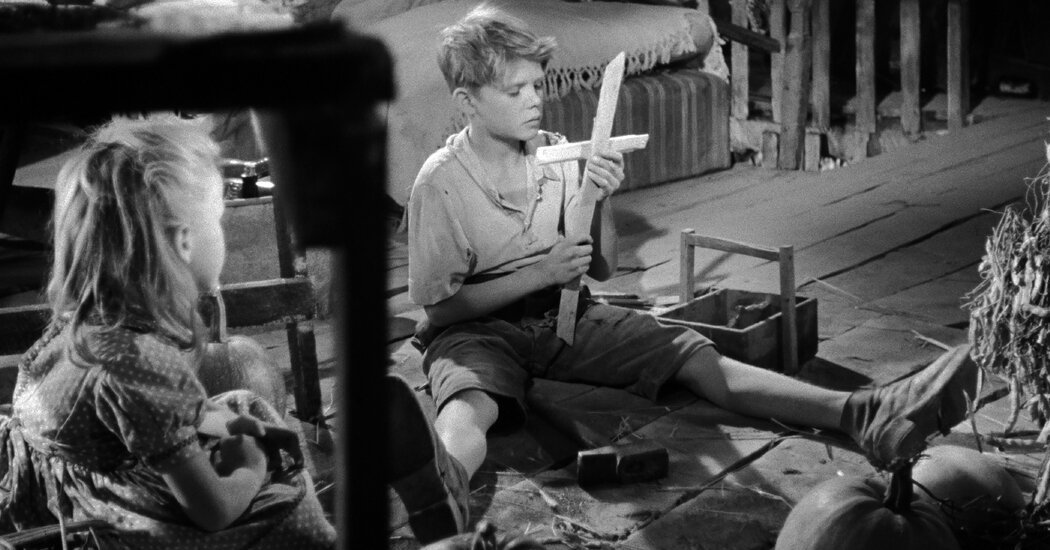[ad_1]
René Clément’s “Forbidden Games” (1952) uses a 5-year-old’s wartime ordeal as the basis for a remarkably unsentimental allegory of childhood innocence and adult ignorance. Straightforwardly simple but psychologically complex, the movie is sweet, sardonic, and ultimately shattering.
Widely (if not universally) hailed on its release and periodically rediscovered as the most troubling French film made in the aftermath of World War II, it returns for a week at Film Forum in a new 4K restoration.
Evoking multiple traumas, “Forbidden Games” unfolds on the eve of France’s surrender to Germany; the opening sequence depicts the panicky exodus of an estimated two million Parisians in June 1940. Crawling through open countryside, the caravan of cars and wagons is ruthlessly bombed by the Nazis. Paulette (Brigitte Fossey) bolts from the family auto to pursue a pet puppy. Her parents follow, the Germans strafe the road. The adults are killed, but not Paulette. Physically unharmed, she wanders off, cradling her dead dog, into fields as verdant as Eden.
A beautiful, golden-haired child with a clear direct gaze, Paulette is discovered by an 11-year-old farm boy, Michel (Georges Poujouly), and brought home to his rustic family. They have their own issues, benignly ignoring Paulette. Unable to process what has befallen her parents, she focuses on burying her dog in the company of other small creatures found dead. Eager to join her obsessional play, Michel helps create a secret cemetery, stealing crosses to mark the graves.
Denied the possibility of mourning her mother and father, Paulette creates her own ritual. That the child neither recognizes the farm family’s totemic “Good Lord” nor understands the symbolism of the crucifix suggests that she may be Jewish (or had freethinker parents). Be that as it may, her difficulty in comprehending her loss highlights the failure of French Catholic metaphysics. Indeed, Paulette’s naïveté renders the customs she observes all the more strange.
At the same time, another “forbidden game” plays out next door: Michel’s older sister tussles in the hay with the neighbor’s son, a just-returned army deserter. The families already hate each other and in a ridiculous argument over the missing crosses, the respective fathers come to blows over an open grave.
Not immediately embraced, “Forbidden Games” was deemed too downbeat for the Cannes Film Festival. Was it that, as suggested by the New York Times critic Bosley Crowther in his appreciative review, the French were shown in too harsh a light “confused by their own pitiably ignorant, hypocritical and inhuman fixed ideas about death?” Or was it because, as Crowther further noted, “one little 5-year-old girl” appeared as “the towering symbol of the war’s vast devastation?” — a comment made months after the American publication of Anne Frank’s diary.
As “Forbidden Games” filled a need then, so it might now. We live in a world where death rains from the sky and tens of thousands of children are killed or orphaned, as was Paulette. The opening assault reverberates throughout, but “Forbidden Games” saves its most heartbreaking moment for Paulette’s climactic “rescue.”
Forbidden Games
Through May 15 at Film Forum in Manhattan, filmforum.org.
[ad_2]
Source link






